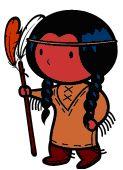
Father and Daughter
父 與 女
source:
大西洋月刊
本文摘錄自美國作家詹姆士•耶弗(James Yaffe)1957年9月份時刊登於大西洋月刊的佳作“Only a Crazy Man Has Daughters(只有瘋子才生女兒)” 。女兒甜美的軟語﹑笑靨與撒嬌帶給父親無比的歡欣,文字輕鬆幽默,對白更是傳神,僅提供給讀者們欣賞。
When a father has a complaint to make about his son, all he has to do is take the boy aside and yell at him.
當一個父親要抱怨兒子的時候,就只需要把他的男孩拉到一邊去,對他吼叫。
a father 通稱,指天底下一般父親。the boy = his son, 若重複使用his son則顯得累贅。
“What do you mean by getting home at three o’clock in the morning? Your mother was worried to death!”
“你凌晨三點才回家是什麼意思?你媽媽擔心死了!”
注意 was worried 用的是過去式,母親的擔心是在兒子回來之前,故用過去式。
“Twenty bucks? You want twenty bucks? My God, the way you spend my money, you could be the United States government. “
“20塊錢?你要20塊錢?我的天啊,你這樣子花我的錢,簡直就是美國政府!”
bucks = dollars。美國政府課稅很重,常被人拿來當笑話講。

“A car of your own? Listen to him, will you? He’s still wet behind the ears, and he wants a car of his own!”
“你自己的一部車子?你要不要聽聽他說的?還是個乳臭未乾的小子,就想要有一部自己的車子!”
will you 的 you 並非指什麼人,只是老子生氣時講出來的話,旁邊未必有第三者在聽他說話。wet behind the ears, 乳臭未乾的意思。
This is the sort of thing that goes on every day. Sarcasm, grumbling, out-and-out rage — how else should a father in this modern world express his affection and concern for his own son?
這種事情天天在上演。諷刺、嘰里咕嚕罵人、大發雷霆 ── 一個父親在這個年頭還有什麼其他法子能對自己的親生兒子表達慈愛和關心呢?
注意 the sort of thing 中的用字 thing,概括得好。上面所舉三例都是父親對兒子的嘮叨,用了一個概括的 thing 一語帶過。sarcasm 諷刺。grumbling 嘰里咕嚕罵人。out-and-out 十足的。rage 大發雷霆。affection 慈愛。concern 關懷。 在這個年頭做父親的還有什麼其他法子(how else)能對自己的親生兒子表達慈愛和關懷呢?
But between a father and his daughter it isn’t so easy. Because a father can’t yell at his daughter, or wave his fist at her threateningly, or call her a good-for-nothing. More than one father has, of course. But he usually ends up with a terrible feeling of guilt over it. And then, when she smiles up at him and puts her hands on his shoulders and murmurs that pet name which he’s always been a sucker for, the most determined father in the world is as helpless as a baby.
但是一個父親和他的女兒之間可沒這麼容易。因為父親不能對著自己的女兒吼,或是對她揮著拳頭恐嚇,或是說她是個廢物。當然,有些父親曾經這麼做過,但是通常事後他會產生罪惡感。然後,當她看著他微笑著,再把她的雙手放在他的肩膀上,嬌聲嗲氣地吐出他一向無法抗拒的暱稱時,全世界最堅定的父親也會像個嬰兒般一樣的無助。
good-for-nothing 一無是用;沒出息的。More than one father has, 注意 More than one 後面要用單數動詞 has。ends up with 結局。feeling of guilt = guilty feeling 感覺歉疚、有罪惡感。sucker 易受騙的人,女兒嬌聲嗲氣地呼叫出這特別的暱稱時,父親一向就乖乖的投降。

Such was the case with Dan Waxman. His daughter Barbara — Bobby he called her, this was his favorite nickname for a girl — was his only daughter. Ever since she was old enough to cry or flutter her eyelashes, she had very little trouble getting her way with him. But she more than paid him back for this. When she was little she paid him back in laughter and high spirits, in showing him how much she enjoyed her life. "Sarah," he used to say to his wife, "what are we bringing up in this household, a little girl or a wild Indian?" "A wild Indian!" Bobby used to shout out gleefully, and jump around the living room giving war whoops.
這就是丹•韋克斯曼的情況。他的女兒芭芭拉 ── 芭比,他這麼喊她,這是他最喜歡的女孩子暱稱 ── 是他唯一的女兒。從她大到懂得以掉眼淚讓人心軟或擠眉弄眼送秋波的時候,對他就可以予取予求了。但是她對他的回報是多過這些的。當她還小的時候,她以笑聲和興高采烈回報給他,表示她過的日子是多麼地幸福快樂。 “莎拉,”他以前常對他的妻子說,“在這個家裡我們是養個什麼啊,一個小姑娘還是一個野印第安人?” “一個野印第安人!” 芭比就會歡欣地喊著,在客廳發出如同印第安人作戰時的呼嘯聲四處蹦跳著。
flutter her eyelashes 擠眉弄眼。getting her way with him 使他聽從她。paid him back 女兒回報給父親。high spirits 興高采烈。bring up 養育。household家庭。wild Indian 野蠻的印第安人。父親故意這麼問:“我們家養了一個小姑娘呢,還是野印第安人呢?”,而女兒欣然以野印第安人自居。gleefully 意氣揚揚的。war whoops 是印第安人作戰時的呼嘯聲。
And now that she was almost grown up, she paid him back in quieter, more ladylike ways. She told him her secrets, the ones she wanted him to hear. She asked his opinion of her clothes and her hairdos. She even laughed at his jokes. Not out of diplomacy either, but heartily and spontaneously, because she thought they were funny and she liked to see him in a good mood.
而現在,她幾乎是個成年人了,她以較為安靜、較為淑女的方式回報給他。她告訴他她的秘密,那些她想要他聽的。她問他對她的衣服和她的髮型的看法。她聽了他的笑話甚至會笑,倒不是出於外交手腕的笑,而是來自內心自發的笑,因為她認為它們是真的有趣,而且她也喜歡看到父親心裡高興。
the ones = the secrets,把一部分秘密讓父親知道,引為知己,也是博得老人家高興的方法。hairdos 髮式,髮型。out of diplomacy,外交手腕的。Not … either, but … 她的笑
倒也不是一種外交手段,
而是自發的真心的大笑。they = his jokes。a good mood 內心高興。
